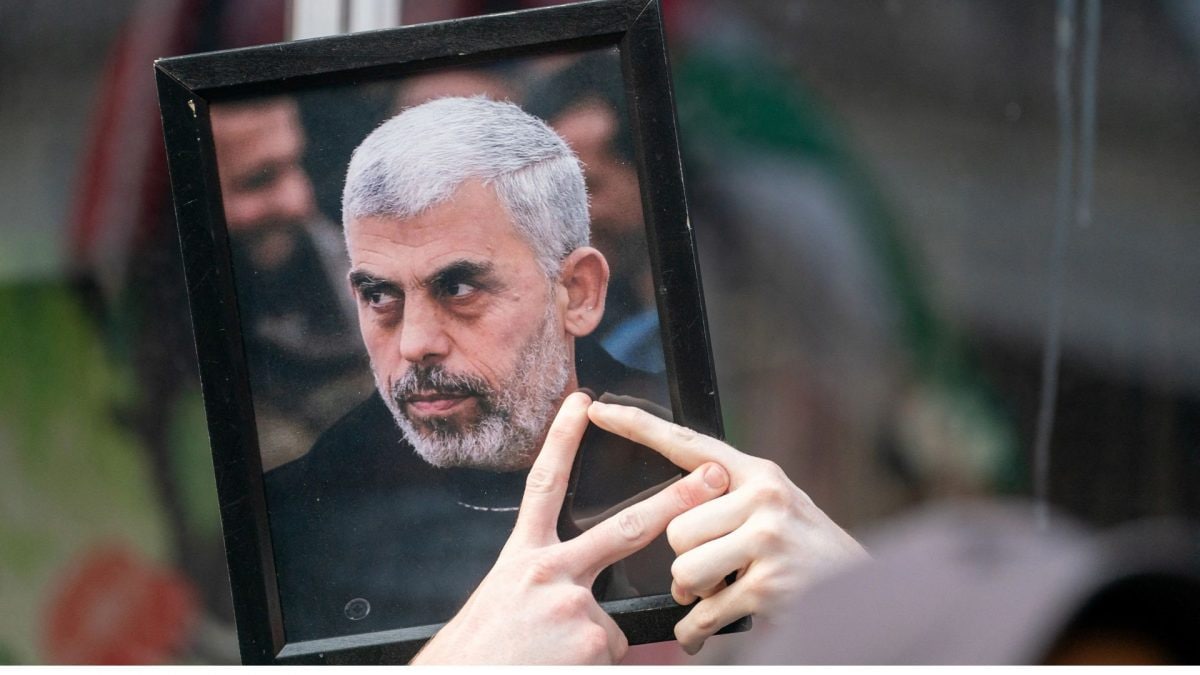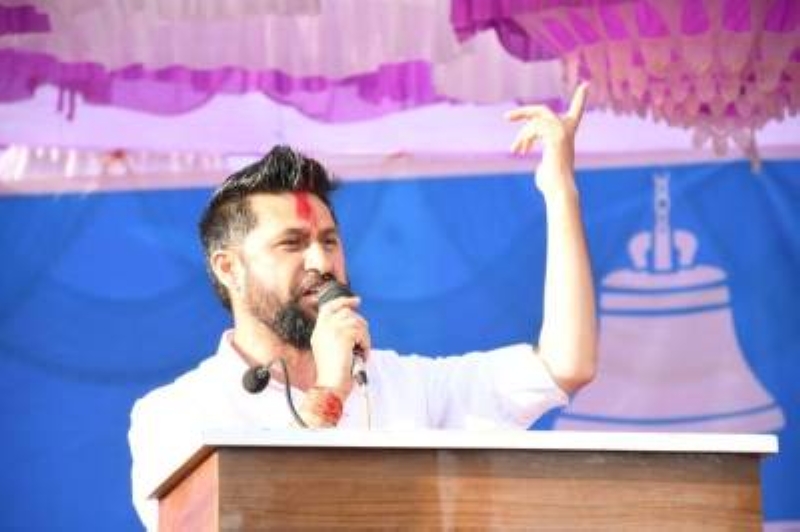
On October 16, Israel continued its run of successful elimination of top leadership of the opposing forces when it eliminated the elusive Hamas leader, Yahya Sinwar, in a gun battle in the Gaza strip. Unlike some of the other successful assassinations of top political and military leaders of Hamas and Hezbollah in the past few months, this wasn’t a planned operation but a gunfight, which resulted in the deaths of three Hamas operatives, including Sinwar. Confirming the news to the world, Israeli Foreign Minister Israel Katz called Sinwar ‘a mass murderer who was responsible for the massacre and atrocities of October7’, adding that it is a military and moral achievement for the Israeli army.
Israeli PM Netanyahu, in a televised address, stated that Israeli forces have delivered “a blow to evil,” adding that “while this is not the end of the war in Gaza, it’s the beginning of the end”. US President Biden congratulated Israel on a very important tactical victory on the battlefield, adding that Sinwar’s death marks a moment of relief for Israelis while providing the opportunity for a “day after” in Gaza without the group in power. Why is Sinwar’s killing so important? Firstly, he is supposed to be the mastermind of the audacious terror attack launched by Hamas on October 7 last year, which caught Israel totally by surprise and resulted in the killing of over 1,400 Israeli citizens.
Secondly, he was the head of Hamas, appointed soon after the assassination of its political chief, Ismail Haniyeh, on July 31, in Tehran. Thirdly, he planned and directed the entire military effort of Hamas in Gaza. Even the intricate underground tunnel network running more than 150 km in Gaza is supposed to be his brainchild.
He also carried immense clout in highest decision-making within Hamas and was seen as the main obstacle to Israel getting a ceasefire in Gaza on its own terms. How can this affect the war in Gaza? The death of Yahya Sinwar is yet another setback in the top echelons of Hamas. While Ismail Haniyeh’s assassination was provocative, to say the least, some other killings in Hamas leadership too have been significant.
On January 2, Hamas’s deputy leader abroad, Saleh al-Arouri, the leader of Hamas’s military wing in the West Bank, was killed in an Israeli strike in the Beirut suburb of Dahiyeh. Another top military commander of Hamas, Mohammed Deif, was killed in an Israeli air raid in southern Gaza on July 13 (although Hamas is yet to confirm it). However, for Israel, the prize was always Sinwar, who was being hunted for the last 12 months.
The news of the killing of Sinwar has therefore not come as a shock, and the fact that he went down fighting with his troops in Gaza clearly reflects two things. One that he would have weighed the risks of being out in the open and therefore would have left instructions for his successor in case of his death. Secondly, as a corollary to the first, his elimination is unlikely to ‘eliminate Hamas from the face of the earth’, something that Israel had set as a war objective.
For Israel, this lucky break can yield either of the two outcomes. Either it could claim that, with the killing of Yahya Sinwar, the main architect of the Gaza war has been removed, and therefore, it could call it a decisive victory, settle for a ceasefire, and seek an honourable exit with momentum on its side. On the other hand, it could take this tactical victory as an opportunity to further intensify its operations against Hamas, hoping to deliver the final death blow to the group.
If it takes the first option, Israel could squeeze itself back on the negotiating table after weeks of stalled process of ceasefire talks. It may also hope to get more of its terms included in the ceasefire deal now that Sinwar is no longer there to obstruct it. The advantage of this option would be that Israel could also get its hostages back, something that would be considered a political and military victory for PM Netanyahu and relieve a lot of pressure from families of hostages back home.
However, if Israel decides to press on the throttle in Gaza, the assurance of a clear victory, which has eluded it for the last 12 months, will continue to be a factor, and it would have to then wait either for a clear achievement of its four war objectives to end the war or continue this endless war of attrition. Here, one has to also see what Israel wishes to do about its plan for retaliation against Iran for the missile attack by Iran on 1st October. For Hamas and the rest of the allies in the ‘Axis of Resistance’, there is no time to mourn the loss but to regroup and exhibit resilience and resolve.
The next level of leadership too has two options. Either it can ‘surrender and lay down arms’ as demanded by Israeli PM Netanyahu, in which case the losses and sacrifices over the year in the war as well as in the struggle over the decades would count to nothing. Also, it looks quite clear from Israeli statements and resolutions in its parliament that it would also signal the end of hope for a ‘Two State Solution’ in the future.
On the other hand, it could take inspiration from the lives and deaths of its leaders and carry on the fight. It has a successful example of Hezbollah to emulate, which, even after the elimination of the top three layers of its leadership, including its charismatic leader Hassan Nasrallah, is giving an equal fight to Israeli forces in southern Lebanon, preventing Israeli forces from making any major breakthroughs and inflicting heavy losses to personnel and weapon platforms. The drone video of Sinwar’s last moments, released by the Israeli army in exuberance, should count as a tactical error as the Hamas cadres are witnessing their leader going down fighting instead of being hunted down in the tunnels, something that can only inspire new cadres and leaders to fight on.
A statement from Iran’s permanent mission to the UN stating, “When Muslims look up to the martyr Sinwar standing on the battlefield, in combat attire and out in the open, not in a hideout, facing the enemy, the spirit of resistance will be strengthened,” is clearly indicative of how this killing could be used to its advantage by Iran, Hamas, and others. Looking Ahead The ongoing war in Gaza is the longest that Israel and Hamas have ever fought. In the past conflicts, Israel undertook swift operations with a clearly defined military objective and ended them on its own terms.
This time, however, the outrage and shame of having been outsmarted and outwitted by Hamas, coupled by the huge loss of lives and hundreds of hostages, has forced Israel to undertake a vastly different approach. Israeli leadership has decided to ‘end this menace once and for all’ at whatever cost of time, money, or lives it takes. In such a totalitarian approach, fighting against multiple groups on multiple fronts is always going to be difficult.
The entry of Iran into a direct conflict has added a new and unprecedented dimension to the threat. Also, the fact that Iran has been able to successfully penetrate the ‘impregnable defences’ of Israel twice, on April 13 and October 1, has forced Israel to recalibrate its war strategy. In such a situation, chances of a clearly defined military victory for Israel look unlikely, at least in the near term.
There are very few wars where one warring party can achieve total victory and annihilate the enemy. In most of the cases, the victor is the one who seizes an opportunity on the battlefield, churns out a suitable narrative hailing it as a major victory, and then dictates the terms for ending the conflict. Israel has this opportunity now.
Yahya Sinwar’s killing can be a good enough reason to declare victory and end the war on its own terms. There will always be another day when the unfinished business could be taken up. As the Chinese say, something has to be left to the coming generations.
Otherwise, the war of attrition will continue, and any miscalculation or a trigger-happy incident would only increase the chances of escalation. Col Rajeev Agarwal is a military veteran and West Asia expert. During his service, he has been Director in Military Intelligence as well as Director in the Ministry of External Affairs.
His X handle is @rajeevidsa. Views expressed in the above piece are personal and solely those of the author. They do not necessarily reflect Firstpost’s views.
.














